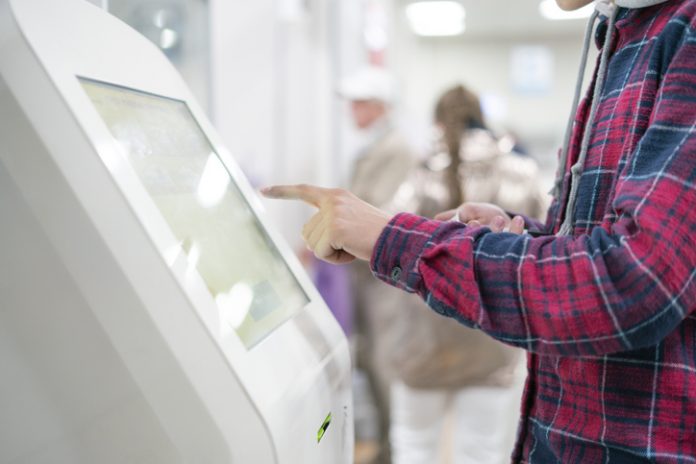
The pandemic has spurred a greater interest and demand for touchless or socially distant interactions between hotel team members and guests. A digital concierge can meet this demand without the impersonal and sometimes frustrating experience of kiosks and touchscreens. Public expectations for health screenings post-pandemic are yet to be determined, but as the mask mandates lift and businesses reopen, a digital concierge platform can provide a better option for customized services and health monitoring to respond to regulatory requirements and guest preferences.
Designed for the hospitality and cruise industries, a digital concierge is a realistic 3D avatar that interacts with guests by asking questions and providing visual choices for responses that guests can select from by voice or touchless gestures. Guests can easily interact with speech or clearly defined gestures without a stiff conversation with fixed responses. Guided voice command accuracy for digital concierge interfaces is high, and the concierge can be customized in multiple languages.
Personalized Experiences
Digital concierge avatars can be created to resemble familiar team members, like front desk staff or the restaurant’s head chef, to make the experience more comfortable. One way that a digital concierge platform can provide touchless yet personalized experiences for common hospitality interactions is through local face recognition, which can allow the software to greet guests by name. Check-in, check-out, room service, and restaurant and activity reservations can be handled by the platform, too. And marketing teams can customize the platform to visually promote services and partners within the hotel.
Typically, touchless kiosks are in public spaces, but integrating the software into guestrooms can be done at a low cost using an in-room TV or guests’ mobile devices; however, smaller screens create less engaging experiences. Locating digital concierges throughout the property can enhance a hotel’s personalized experience.
Health Screenings
If health monitoring is required or preferred for guests and employees, health status surveys can be incorporated into digital concierge platforms. Vital sign measurements can be configured based on the facility. Temperature is the most common vital sign measured, but in more sensitive facilities, the sensors can be used more extensively. Sensors that require touch or direct contact—like oximeters—can be automatically sterilized with UVC LEDs. The kiosk also has the capability of tracking longitudinal health data, flagging any negative trends for employees or other regular visitors, and tracing testing status in situations where regular testing is required.
In addition to health screenings, a digital concierge can incorporate telemedicine functionality. The hotel avatar can be replaced with a digital doctor who interacts with employees to make complete health history surveys and measure vital signs. Based on initial responses, the patient can be triaged to the necessary health services and connected with a telemedicine provider or the hotel’s health department.
The New Reality
Digital avatars are unlikely to replace seasoned concierges, but the software can give hotel guests an alternative that is predictable, safe, and cost-effective throughout their stay. The guest experience can be uniform across a brand and capture feedback about interactions with the platform. Digital concierges can also be customized to reflect a hotel’s brand personality, as well as support hotel-specific events like conferences and weddings.
The digital concierge can serve as the primary contact point in a more utilitarian property or support team members in a property known for personalized service. No matter the setting, the digital avatar makes the human team members more effective and efficient while providing services at the distances that are preferred by guests.











